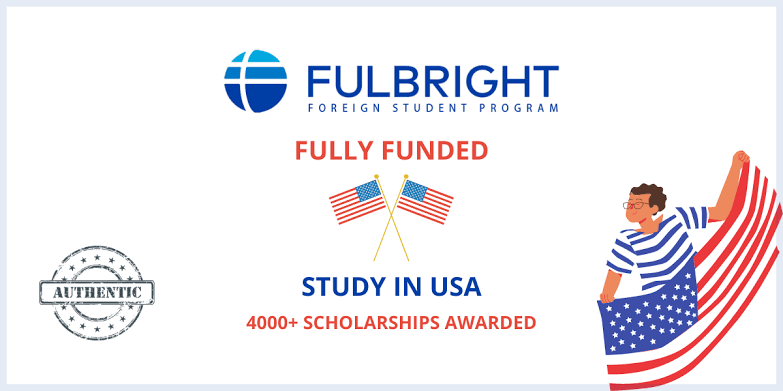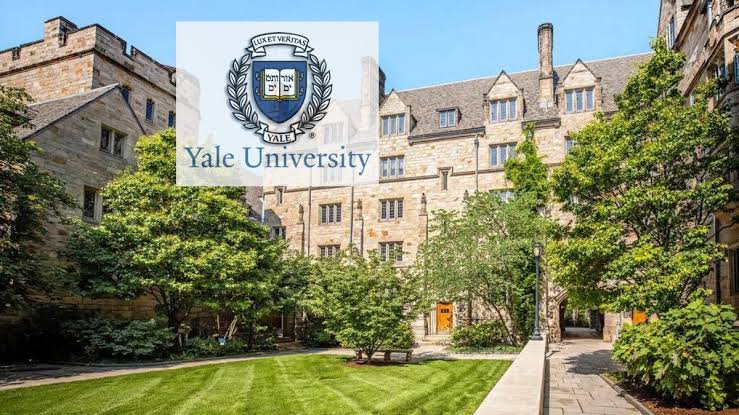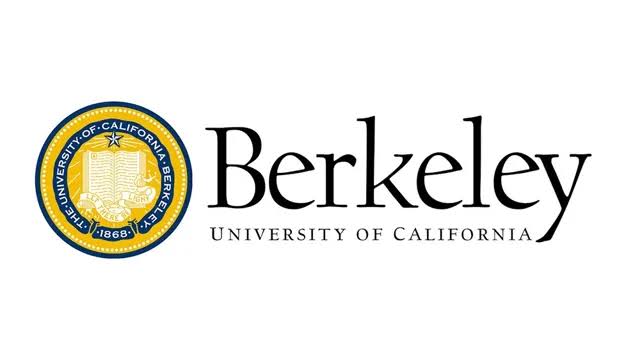The University of Michigan stands as one of America’s premier public research universities, consistently ranking among the top institutions nationwide. With its Ann Arbor campus serving as a beacon of academic excellence, the university attracts thousands of high-achieving students annually. However, the cost of higher education continues to rise, making college financial aid and university scholarships more critical than ever for aspiring students.
For the 2025/2026 academic year, the University of Michigan has expanded its comprehensive scholarship programs, offering substantial financial assistance to deserving candidates across multiple categories. This expert analysis provides an in-depth examination of available funding opportunities, application strategies, and insider tips for securing these competitive awards.
Understanding the University of Michigan Scholarship Landscape
The University of Michigan’s financial aid ecosystem encompasses merit-based scholarships, need-based grants, and specialized funding programs designed to support academic excellence while promoting diversity and inclusion. With over $180 million distributed annually in institutional aid, the university demonstrates its commitment to making quality education accessible to students from all socioeconomic backgrounds.
The scholarship selection process at Michigan involves rigorous evaluation criteria, including academic performance, standardized test scores, leadership experience, community service, and demonstrated financial need. Understanding these factors is crucial for developing a successful application strategy.
Law School Scholarships: Funding Your Legal Education
Michigan Law Merit-Based Awards
The University of Michigan Law School, consistently ranked among the top five law schools nationally, offers extensive scholarship opportunities for both incoming and continuing students. The total scholarship budget for law students exceeds $25 million annually, with awards ranging from partial tuition coverage to full-ride scholarships.
The Dean’s Merit Scholarship represents the most prestigious award available to incoming law students. Recipients typically possess LSAT scores in the 99th percentile and undergraduate GPAs exceeding 3.8. Award amounts can reach up to $60,000 annually, covering nearly the entire cost of tuition for Michigan residents.
Michigan Law Public Interest Scholarships target students committed to careers in public service, non-profit organizations, or government agencies. These awards not only provide financial support but also connect recipients with mentorship opportunities and summer internship placements in relevant organizations.
Need-Based Legal Education Funding
The law school’s need-based financial aid program considers various factors beyond traditional income metrics, including family size, geographic location, and special circumstances. Students from families earning less than $75,000 annually often qualify for substantial grant assistance, while those from middle-income families may receive partial support.
The application process for law school financial aid requires submission of both the FAFSA and the CSS Profile, along with supporting documentation such as tax returns and bank statements. Early submission is crucial, as funds are allocated on a first-come, first-served basis.
Undergraduate Scholarship Opportunities for Incoming Freshmen
High-Impact Merit Scholarships
The University of Michigan’s undergraduate scholarship program recognizes exceptional academic achievement while supporting students who demonstrate leadership potential and community engagement. The flagship Michigan Merit Award provides up to $20,000 annually for four years, totaling $80,000 in support.
The Regent’s Merit Scholarship targets students from underrepresented backgrounds who have overcome significant challenges to achieve academic success. This comprehensive award covers full tuition, room and board, and provides additional support for books, supplies, and personal expenses.
College-specific scholarships within individual schools and departments offer additional funding opportunities. The College of Engineering’s Shipman Scholarship provides $10,000 annually to students pursuing degrees in engineering fields Engineering scholarship applications, while the Ross School of Business offers the Business Scholars Program with awards up to $15,000 per year.
Special Population Scholarships
First-generation college students can access dedicated funding through the Go Blue Guarantee program, which covers full tuition and fees for students whose families earn less than $65,000 annually. This initiative recognizes the unique challenges faced by students who are the first in their families to pursue higher education.
The Michigan Difference Scholarship supports students from Michigan high schools who demonstrate both academic excellence and financial need. Award amounts vary based on individual circumstances, with maximum awards reaching $12,000 annually.
SEE ALSO: Fully Funded USA Scholarships in 2025: Application Process with Visa Sponsorship and IELTS Waivers
International Student Financial Support
Merit-Based International Awards
International students face unique financial challenges, including higher tuition rates and limited access to federal financial aid programs. The University of Michigan addresses these challenges through comprehensive international scholarship programs designed to attract top global talent.
The International Student Merit Scholarship provides awards ranging from $5,000 to $25,000 annually, based on academic achievement, English proficiency, and demonstrated leadership experience. Priority consideration is given to students from countries with limited representation in the university’s student body.
The Global Scholars Program offers full-tuition scholarships to exceptional international students who demonstrate both academic excellence and commitment to addressing global challenges. Recipients participate in specialized programming, including leadership development workshops and research opportunities with faculty mentors.
Graduate International Funding
International graduate students can access funding through research assistantships, teaching assistantships, and fellowship programs. The Rackham Graduate School offers the International Student Fellowship, providing up to $30,000 annually plus full tuition coverage for doctoral students in select programs.
Professional master’s programs often include dedicated international student scholarships. The School of Information’s International Student Scholarship provides $15,000 annually to students pursuing the Master of Science in Information program.
Advanced Application Strategies
Optimizing Your Application Profile
Successful scholarship recipients typically demonstrate excellence across multiple dimensions. Academic performance remains the primary factor, with most merit scholarship recipients ranking in the top 10% of their graduating class. However, standardized test scores alone do not guarantee success.
Leadership experience carries significant weight in the evaluation process. Admissions committees seek evidence of sustained commitment to meaningful activities, whether through student government, community service, athletic participation, or entrepreneurial ventures. The quality of involvement matters more than the quantity of activities.
The personal statement serves as a critical differentiator in competitive scholarship pools. Effective essays demonstrate self-awareness, articulate clear goals, and connect past experiences to future aspirations. Avoid generic statements about wanting to “make a difference” and instead provide specific examples of impact and growth.
Documentation and Deadline Management
Scholarship applications require extensive documentation, including official transcripts, standardized test scores, letters of recommendation, and financial information. Create a comprehensive checklist and timeline to ensure all materials are submitted before deadlines.
Letters of recommendation should come from individuals who can speak specifically to your academic abilities, character, and potential for success. Provide recommenders with detailed information about the scholarship requirements and your relevant experiences to help them craft compelling letters.
Financial documentation must be accurate and complete. For need-based awards, any discrepancies or missing information can result in delayed processing or award adjustments. Submit tax returns, W-2 forms, and bank statements as required.
Maximizing Your Scholarship Potential
Multiple Application Strategy
Apply for multiple scholarships to maximize your chances of receiving funding. Many students focus exclusively on large, prestigious awards while overlooking smaller scholarships that may be less competitive. A portfolio approach combining several moderate awards can be more effective than pursuing a single large scholarship.
External scholarships from foundations, corporations, and community organizations can supplement university-based awards. Resources like Scholarship America, the College Board, and Fastweb provide comprehensive databases of available opportunities.
Maintaining Scholarship Eligibility
Most University of Michigan scholarships require recipients to maintain specific academic standards and enrollment requirements. Merit-based awards typically require a minimum GPA of 3.0 or higher, while some prestigious scholarships mandate GPAs of 3.5 or above.
Renewal requirements may include participation in scholars programs, community service commitments, or progress toward degree completion within specified timeframes. Understand these obligations before accepting awards to ensure continued eligibility.
Financial Planning and Award Optimization
Understanding Award Packages
University of Michigan financial aid packages often combine multiple funding sources, including scholarships, grants, work-study opportunities, and loans. The net price calculator on the university’s website provides personalized estimates based on individual circumstances.
Merit scholarships can be combined with need-based aid, but total awards cannot exceed the cost of attendance. This stacking policy means that additional scholarships may reduce need-based aid rather than providing extra funding.
Strategic Enrollment Decisions
Early admission applicants often receive priority consideration for merit scholarships, as the university uses these awards to attract top candidates. However, regular decision applicants can still secure significant funding, particularly for need-based programs.
Out-of-state students should carefully evaluate the total cost of attendance, including tuition, fees, housing, and living expenses. While scholarship awards can substantially reduce costs, the overall investment may still exceed that of in-state public universities.
Specialized Funding Opportunities
Research and Academic Enrichment
The University of Michigan offers numerous opportunities for undergraduate research, many of which include stipends or scholarships. The Undergraduate Research Opportunity Program (UROP) provides funding for students to work directly with faculty on research projects.
Study abroad scholarships help offset the costs of international experiences. The International Institute offers need-based and merit-based awards for students participating in approved programs worldwide.
Professional Development Support
Many scholarship programs include professional development components, such as networking events, career counseling, and internship placement assistance. These additional benefits can provide value beyond the financial award itself.
Alumni scholarship programs often include mentorship opportunities, connecting current students with successful graduates in their fields of interest. These relationships can provide valuable career guidance and professional connections.
Official Application Links and Resources
University of Michigan Scholarship Application Portals
General Scholarships and Financial Aid:
- Official U-M Scholarships Page: https://finaid.umich.edu/types-aid/scholarships
- Undergraduate Scholarships: https://finaid.umich.edu/types-aid/scholarships/undergraduate
- OFA Scholarship Listing: https://finaid.umich.edu/types-aid/scholarships/undergraduate/ofa-scholarship-listing
Law School Financial Aid:
- Michigan Law Financial Aid for JD Students: https://michigan.law.umich.edu/resource-center/financial-aid-jd-students
- Law School Tuition and Aid Information: https://michigan.law.umich.edu/admissions/tuition-and-aid
- Financial Aid Information for 1Ls: https://michigan.law.umich.edu/resource-center/financial-aid-information-1ls
- JD Program Application: https://michigan.law.umich.edu/admissions/apply-jd-program
College-Specific Scholarships:
- College of LSA Scholarships: https://lsa.umich.edu/scholarships/prospective-students.html
- LSA Merit Scholarships: https://lsa.umich.edu/scholarships/prospective-students/merit-scholarships.html
- Engineering Scholarships for New Students: https://scholarships.engin.umich.edu/undergraduate/new-students/
Important Note: Most University of Michigan scholarships are automatically considered upon admission – no separate application is required for many merit-based awards. However, some specialized scholarships and need-based aid require additional forms and documentation.
Application Timeline and Key Dates
Critical Deadlines
Scholarship deadlines vary by program and student type. Law school scholarship applications typically follow the admission timeline, with priority deadlines in February for fall enrollment. Undergraduate merit scholarships often require submission by December 1st for maximum consideration.
International students should note that visa processing requirements may affect scholarship timelines. Begin the application process early to allow sufficient time for document preparation and submission.
Year-Round Opportunities
While most major scholarships have annual deadlines, some funding opportunities become available throughout the academic year. Emergency financial aid, summer funding, and research grants may have rolling deadlines or specific application periods.
Monitor the university’s financial aid website and scholarship databases regularly for new opportunities. Many smaller scholarships receive limited applications due to a lack of awareness, which improves your chances of success.
Success Stories and Best Practices
Learning from Recipients
Current scholarship recipients consistently emphasize the importance of authentic storytelling in application essays. Rather than attempting to present a perfect image, successful applicants acknowledge challenges and demonstrate growth through adversity.
Faculty recommendations carry particular weight when they include specific examples of student performance and potential. Building meaningful relationships with professors and instructors creates opportunities for strong advocacy in recommendation letters.
Common Application Mistakes
Avoid generic application materials that could apply to any university or scholarship program. Tailor each application to the specific opportunity, demonstrating knowledge of the institution and program requirements.
Proofreading and attention to detail are essential. Spelling errors, grammatical mistakes, and formatting issues can undermine an otherwise strong application. Have multiple people review your materials before submission.
Conclusion
The University of Michigan’s comprehensive scholarship programs provide substantial opportunities for students across all academic levels and backgrounds. Success in securing these competitive awards requires strategic planning, meticulous preparation, and compelling presentation of your unique qualifications and potential.
Begin the application process early, allowing sufficient time for research, document preparation, and essay writing. Focus on quality over quantity in your applications, ensuring that each submission represents your best work and authentic voice.
Remember that scholarship success is just the beginning of your University of Michigan journey. These awards represent investments in your potential, creating opportunities for academic excellence, leadership development, and lifelong connections with one of America’s premier educational institutions.
The financial support available through these programs can transform your educational experience, allowing you to focus on learning, research, and personal growth without the burden of overwhelming debt. Take advantage of these opportunities to invest in your future and contribute to the University of Michigan’s tradition of excellence.






